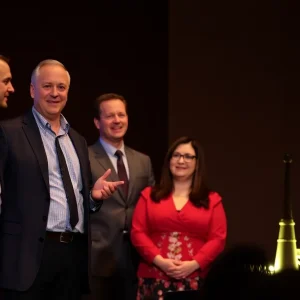Controversy Erupts in Chapin Over Free Speech and Signage Regulations
In the quaint town of Chapin, South Carolina, a clash between free speech and local regulations has left residents buzzing. This small town, which boasts a population of nearly 2,000, has found itself at the center of a debate about the limits of expression in public spaces. The issue was sparked by a local resident’s recent experience while sharing his faith with a sign on a public sidewalk.
The Incident
Ernist Giardino, a member of the community, was holding a sign that read “Trust Christ He paid the price” on one side and “He Saved Others—Jesus—He’ll Save You” on the other. This was not the first time Giardino had shared his message; he had been peacefully doing so for about eight months without any problems. However, during a visit to the busy intersection of Old Lexington Road and Chapin Road last June, everything changed.
Giardino described his surprise when a Chapin police officer approached him and informed him that he would need to obtain a permit to continue sharing his message with the sign. “It was a shock to me,” he said. The next day, eager to clarify the situation, Giardino met with the town’s Code Enforcement Officer and Chief of Police, where they confirmed the need for a permit. To his dismay, he learned that he was only allowed to hold his sign for a mere 30 minutes, and he had to change sidewalk corners every 15 minutes. This didn’t sit well with him or the First Liberty Institute, a national Christian conservative organization advocating for free speech rights.
First Liberty Institute Steps In
In response to the town’s actions, the First Liberty Institute released a statement asserting that Giardino’s rights had been violated. Nate Kellum, senior counsel for the group, strongly stated, “No one needs the government’s permission to express their faith in public. The First Amendment is his permit.” The group considers the town’s ordinance to be overbroad and unconstitutional, arguing that individuals like Giardino should be free to express their beliefs on public sidewalks without cumbersome regulations.
Town’s Response
On the other side of the equation, Chapin Town Administrator Nicholle Burroughs was quick to address the concerns. She explained that the town requires a public demonstration permit whenever any form of signage or sound amplification is used. “Our goal is to balance the right to free speech with the need for reasonable regulations on the size, placement, and duration of signage,” Burroughs said. The town has issued over 17 permits since June and emphasizes that all demonstration requests have been approved.
A Delicate Balance
Burroughs elaborated on the town’s position, stating, “We recognize that the ability to express ideas, opinions, and beliefs is essential to a healthy and vibrant community.” However, she equally stressed the importance of regulating the use of signage and amplification devices to maintain a peaceful environment for all residents. The message from the town is clear: they want to protect the shared interests of the community while still allowing for individual expression.
Community Reaction
As the debate unfolds, residents of Chapin are left to ponder the implications of these regulations. Many wonder if the rules are designed to keep the peace or if they step too far into the realm of limiting individual rights. The discussion has sparked a lively dialogue within the community about what it means to exercise one’s rights in a way that respects both personal beliefs and the values of the surrounding environment.
As this story develops, it remains to be seen how the town will respond to the challenges posed by residents and advocacy groups regarding freedom of speech. One thing is for sure: the sidewalks of Chapin are more than just pathways; they’re at the heart of an evolving conversation about rights, regulations, and the spirit of community.




























